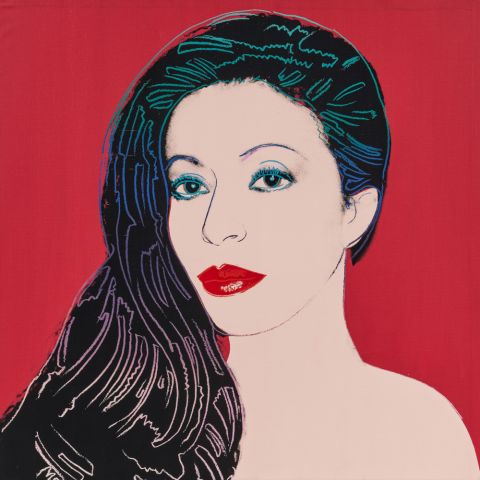
Lot 22 | Emil Schumacher | "Ablon"
1912 Hagen - 1999 San José/Ibiza
Title: "Ablon".
Date: 1975.
Technique: Oil on canvas.
Measurement: 70 x 50cm.
Notation: Signed and dated lower right: Schumacher 75. Dated and titled verso top on the stretcher: 1975 Title: "Ablon". Here additionally equipped with work details.
Frame/Pedestal: Framed.
The painting is listed with inventory number 0/6 in the Emil Schumacher Foundation's catalogue compiled by Dr Ulrich Schumacher. We would like to thank Mr Rouven Lotz, Director of the Emil Schumacher Museum in Hagen, for his kind academic support.
Provenance:
- Hans Ostertag Gallery, Frankfurt am Main
- Private collection, southern Germany (acquired from previous owner according to consignor)
- By the important representative of German Informel
- Expressive colour landscape masterfully executed in Schumacher's endeavour to achieve the greatest possible materiality with colour
- Painting with a strong haptic effect on the border between figuration and abstraction
The materiality of colour as an intrinsic value in image creation
Emil Schumacher is one of the most important representatives of German Informel. After the Second World War, as a freelance artist, he joined the contemporary trends of expressive, non-representational painting, which originated primarily from the abstract avant-garde of the "Nouvelle École de Paris". Its representatives broke with the past by liberating art from the traditional rules that had determined form and composition. These were replaced by informal forms of expression centred on gesture and texture.
Accordingly, Schumacher dispensed with any constructive order from the 1950s onwards. His experimental visual language is based on a turn towards the immediate materiality of colour, which he uses to create images. In his sculptural working method, which captivates with its extremely impasto application of paint, he explores the material properties of the painting substance. As early as 1951, Schumacher noted: "I began to take an interest in paint as a substance, as a material, as something tangible." (quoted from: exhibition catalogue Emil Schumacher, Arbeiten auf Papier. Kunstmuseum Hannover, Kunsthalle Darmstadt et al., 1982/83, p. 26.) Expressive movements create an exciting dynamic on the surface of the picture, driving its haptic development forward. The picture carrier thus becomes a field of action for powerful interventions, including violent actions such as scratching and hammering. Such destructive influences enabled the breakthrough into three-dimensionality and thus a fundamental opening up of painting. In addition to rough layers of paint, Schumacher uses wire, paper, wood, stones, nails, asphalt and sisal to enhance the physical presence of his painting in colour reliefs.
As early as 1954, Schumacher took part in the exhibition "Deutsche Kunst nach 45" (German Art after 1945) at the Stedelijk Museum in Amsterdam, which presented contemporary art from Germany abroad for the first time after the war. His international breakthrough came in 1955 with the exhibition "Peintures et sculptures non figuratives en Allemagne d'aujourd'hui" (Non-figurative Paintings and Sculptures in Germany Today) at the Cercle Volney in Paris, which was decisive for the reorientation of German art. His success continued to grow with the award of the Guggenheim Award in 1958 and his participation in documenta (II, III and 6) and the 29th Venice Biennale in 1961.
Eruptive moment of creation
In the present work, "Ablon" (1975), impasto red paint pours across the picture surface like viscous, blazing lava. It seems to tell of the formation of the Earth's surface from glowing rock: in this volcanic motif, structures have formed from within, as if in an eruptive act, and have solidified into a cracked crust of paint.
Here, the paint becomes an unleashed primal force to which the artist is exposed in the painting process, for Schumacher, the picture always took shape from the resistance of the material. In his work, the artist's original, eternal struggle with the material he seeks to shape always has an immediate effect: the surface bears the traces of this sometimes physically demanding work process, in which Schumacher does not seek to tame the idiosyncratic materiality of the material, but incorporates it as an equal creative element. "This paint is also [...] substance, tangible, palpable substance. It is necessary to overcome its malleability. Only then does it take on character." (Emil Schumacher, quoted in ibid., p. 38.)
The title "Ablon" refers to the small French port town of Ablon in Normandy, located near the mouth of the Seine at Le Havre. The black, circular markings on the painting thus seem to symbolically depict the course of the terrain and the incision made by the river. However, despite the contour-like suggestion of a place, no general attribution of meaning can be made, as Schumacher's conception of spatiality is neither illusionistic nor illustrative, but rather follows an indeterminate openness.
Bettina Haiss
Print this lot | Recommend lot |
Conditions of this Lot
32% buyer’s premium on the hammer price
Estimated shipping costs for this lot:
Arrangement after the auction.







